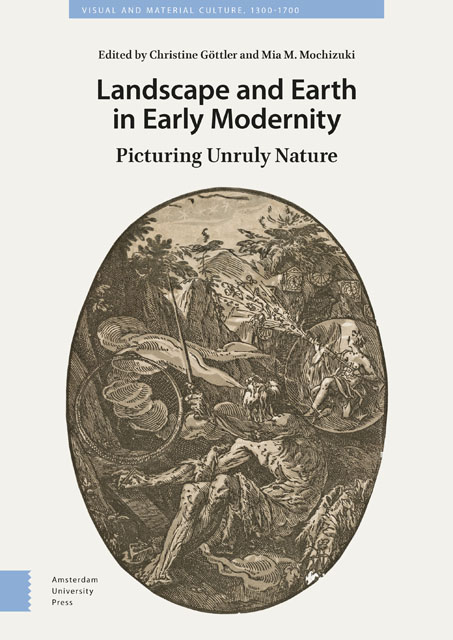Landscape, Mutability, and the Unruly Earth: An Introduction
Published online by Cambridge University Press: 20 June 2023
Summary
Abstract
Taking unruliness as a central category, this introduction explores a fresh approach to early modern art centering on landscape, which is here defined in terms of modes of engagement with ever-changing nature and the mutable body of the earth. During the early modern period, unruliness was viewed as the defining condition of the natural elemental world. Proceeding from three interrelated case studies focusing on processes of extraction and material transformation, the reshaping of land through labor, religion, and art, and the overthrow of nature through God's intervention, the early modern landscape will be presented as a mediating concept between shifting notions of nature and earth.
Keywords: earth; landscape; nature; unruliness; overthrow; reform
“Art Show as Unruly Organism”: this was the tagline used by New York Times art critic Roberta Smith for her review of the Kassel documenta (13), 2012. It was accompanied by a picture of the Doing Nothing Garden created by Beijing artist Song Dong, set up in front of the baroque Orangery along the central axis of Karlsaue Park, but separated from its well-kept lawn by a ring of orange rubber tubing. Artists participating in the 2012 documenta were asked to engage with the sites on which their works would be displayed. The Orangery, built for Landgrave Karl of Hesse-Kassel (1654–1730) as a summer residence and a house for overwintering plants, was originally designed as the focal point of the newly laid-out French formal garden. Celebrated at the time for its technological innovations, it was later transformed into a landscape garden, in other words, a type of garden that attempted to conceal human labor and intervention.
Song Dong's Doing Nothing Garden functioned as a heterotopic space, a garden within another garden, but one that was left to grow unruly and of its own accord (Fig. 0.1). The artist began the project in 2010 by sowing seeds of roughly eighty different local plant species on piles of municipal waste, shaped into an undulating row of mounds. By the time the documenta opened, the garden had grown to a height of roughly 6 meters.
- Type
- Chapter
- Information
- Landscape and Earth in Early ModernityPicturing Unruly Nature, pp. 27 - 72Publisher: Amsterdam University PressPrint publication year: 2022



